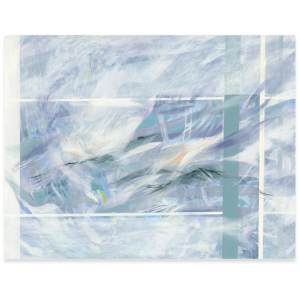Culture in the Digital Age
By Jo Phillips
Here in the 21st century, there’s no denying the fact that the cultural landscape is undergoing a profound transformation. The phenomenal growth in the digital domain over the past two and a half decades has not only reshaped how we communicate and entertain ourselves but has also profoundly influenced cultural staples from art to fashion, music and social movements.
At the heart of this digital-led renaissance are two powerhouse tech sectors: social media and gaming. Whether you love social media or are one of the many who try to avoid it, its impact on modern life has been unprecedented. The same applies to the gaming industry; what was once a niche hobby has become a hugely influential Big Tech behemoth.
Culture Through the Social Media Lens
There are several ways in which social media platforms have begun to revolutionise the creation and consumption of culture and entertainment. Up first, their impact on the art world. Platforms like Instagram and TikTok have democratised the commercialisation of art, offering makers unprecedented opportunities to showcase their work to a global audience. Plus, digital artists are now celebrated for their innovative uses of technology, blending traditional techniques with digital tools.
For example, artists like Beeple, who gained fame through platforms like Instagram, have transformed the public perception of digital art. Beeple’s NFT (Non-Fungible Token) artworks have sold for millions, demonstrating the tangible value and cultural impact of entirely digital creations.
It’s a similar story in the fashion world in the 21st century. Today, fashion is as much about the digital showcase as it is about the physical garment. Instead of looking to the elite classes for fashion and lifestyle inspiration, today’s consumer relates more with influencers on platforms like Instagram and YouTube, meaning that they can wield significant power when it comes to setting trends and influencing consumer behaviour.
Virtual fashion shows have become a staple, with major brands leveraging the reach of social media to debut their latest collections. The ability to livestream events means fashion enthusiasts across the globe can tune into a myriad Fashion Weeks from the comfort of home.
Another core cultural industry that’s been radically reshaped by social media is the music industry. Platforms like SoundCloud have been instrumental in giving visibility to independent artists who might otherwise have remained undiscovered. Even on more visually-focused social media apps, viral challenges and trending videos can catapult songs, and therefore artists, to global fame in a matter of days.
In particular, TikTok has become a major launchpad for music careers. Songs like Lil Nas X’s ‘Old Town Road’ gained massive popularity through user-generated content, showcasing just how influential these platforms can be in shaping music trends.
Gaming and Culture
Gaming has evolved into a legitimate cultural powerhouse, both influencing mainstream sectors and generating its own unique subcultures. Since the early noughties, video gaming has become a competitive spectator sport, with eSports tournaments now drawing viewership numbers that rival traditional sporting events.
In fact, the rise of eSports has brought competitive gaming to the forefront of mainstream entertainment. Games like Dota 2, Valorant and Counter-Strike 2 (formerly known as CS:GO), host tournaments with prize pools reaching millions of dollars, attracting elite gamers and dedicated fanbases. These days, pro gamers are as much celebrities as film and TV stars thanks to the massive followings they can build by leveraging platforms like Twitch and YouTube.
As well as the classic video gaming segments, there are several other facets of gaming that have made an impact on culture. Take the online casino sector, for instance, which is populated by web-based platforms offering immersive digital formats of traditional card and table games like roulette. These platforms offer more than just gaming, they can also provide social experiences through live dealer interactions, multiplayer tournaments and chat functions. What’s more, this digitalisation of a traditionally land-based activity is helping to modernise casino gaming, ensuring it appeals to a broader demographic than can be captured by brick-and-mortar options.
When it comes to things like art, fashion and music, gaming also plays an ever-growing influential role. There’s a strong crossover between digital art and gaming, with gaming actually paving the way for the era of NFTs and collectible digital assets. The industry also has a hand in the fashion world too; virtual avatars in games like Fortnite and The Sims sport outfits designed by big-name fashion houses such as Balenciaga. And, speaking of Fortnite, this is a game that’s been instrumental in pioneering in-game virtual concerts from real-life music artists.





